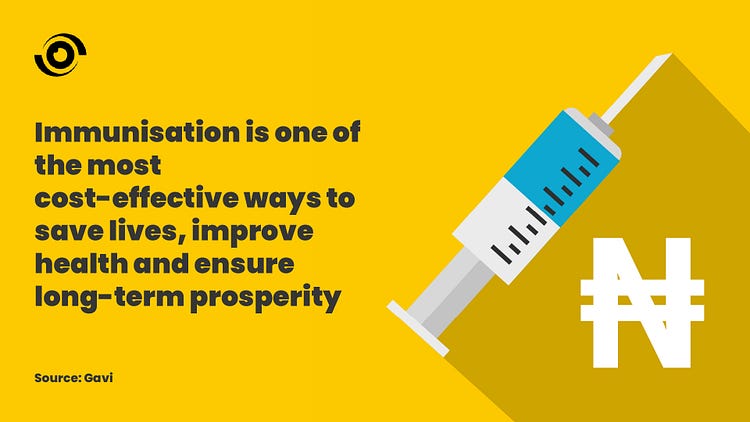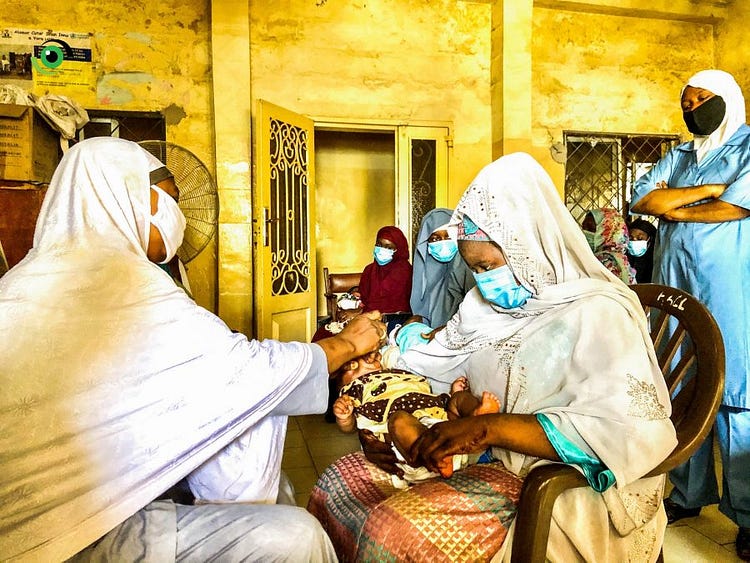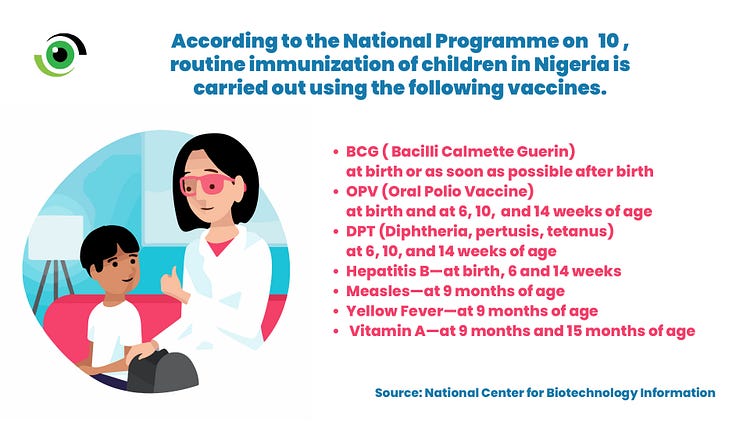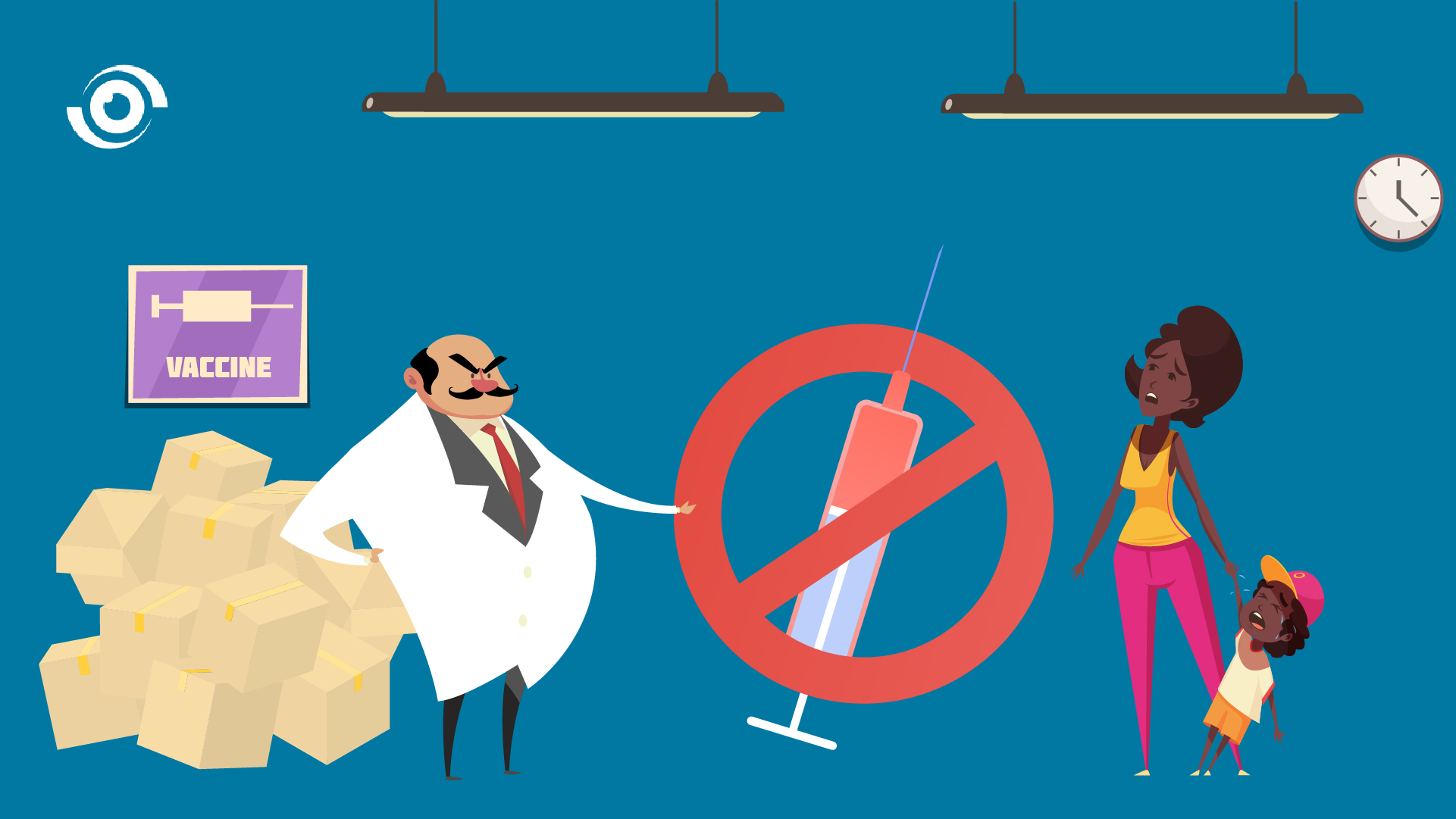Vaccines administered on the Nigerian National Immunisation schedule are free, right? Ewomazino disagrees. She had given birth to lovely twin boys and the expenses started to pile up almost immediately, often threatening to overshadow the joys that usually accompany the birth of a child. At birth, immunisation for her boys cost her 50,000 naira per child, at a private health facility in Sapele. With advice from her neighbour, her next vaccination appointment was at a general hospital near her residence where the vaccines were said to be free. After a two-hour wait with her fussy newborns, she was told that the hospital did not have PCV and Pentavalent vaccine and after more fruitless visits, she abandoned the whole vaccination affair altogether.
Most people would agree that vaccines are important, however the confusion between the message that ‘vaccines are free’ and the charge a parent/guardian is billed for routine immunisation is a challenge that may be causing the high rate of incomplete vaccine schedules among children.
The immunisation coverage rate is measured by comparing the number of doses actually given and the number in the target population of surviving infants under one year of age. To achieve maximum protection against vaccine-preventable diseases, a child should receive all immunisations within recommended intervals. Administration of vaccines at recommended ages and intervals ensures that children are adequately protected from vaccine-preventable diseases at all times.
In Nigeria, which has one of the highest child mortality rates in the world, vaccine-preventable diseases account for more than 20% of mortality in children under five years. Immunisation is thus one of the most cost-effective ways to save lives, improve health and ensure long-term prosperity.

It is common knowledge that child vaccines are largely free at most public or government health facilities, but that knowledge does little good for many clients who visit the public facilities and are frequently told that needed vaccines are out-of-stock. Thus, needing to vaccinate their children; parents and guardians resort to visiting private health facilities where it is expensive to be vaccinated.
In a 2013 study, the prevalence of vaccine stockouts in Nigeria was found to be about 82.7%. The study also connected vaccine stockout with low vaccine uptake especially in locations where vaccine awareness is low. This could be interpreted to mean that a client who seeks vaccines for their children and are turned back due to stock out would be less likely to come back for other vaccines. Reducing vaccine stockouts in regions with the low vaccination coverage might be an effective way to increase the overall vaccination rate.
Private health facilities which are the only other alternative available to parents and guardians who are determined to ensure that their children receive the complete schedule, charge high user fees for these vaccines, making them inaccessible to a majority of the users. A staff of a private hospital said that the charges are not for the vaccines but are for services needed to administer these vaccines otherwise known as user fees. A WHO paper explains how user fees for vaccines can affect immunisation completion rates because many households would simply choose to save the money until their child becomes sick, rather than pay for a vaccine upfront, especially where vaccine literacy is low.

While it is understood that private health facilities are still businesses which need to make a profit to survive, it is important to create a platform to bring these facilities under a unified structure and encourage them to be innovative to reduce user fees, thus establishing them as a viable second alternative when there are stockouts in public health facilities. The ultimate goal is to increase vaccine coverage and completion in under-five like Ewomazino should not have to pay such exorbitant fees to immunise their children.
There is actual improvement in some immunisation services, such as DPT coverage with Nigeria exceeding the target of 80% to achieve 98% coverage, according to the Nigerian Comprehensive Multiyear Plan for 2016–2020. This provides further evidence that having vaccines always in stock increases uptake, usage, and coverage especially in areas with low awareness.
Recommendations
The government through the Nigerian Strategy for Immunisation and PHC System Strengthening (NSIPSS) has committed to demonstrating its intention and the pathway for financing the NSIPSS and phased transition over the next ten years of Nigeria’s long term vaccination funder Gavi, the Vaccine Alliance. It is imperative that citizens and advocates hold the government accountable for this commitment to achieve improved local funding for vaccines. Nigerians must push to increase sustainability of immunization financing.
Improve health services delivery in public facilities — Public does not always have to be synonymous with poor service. Ijede General Hospital among others has shown what levels of quality service is possible in a publicly owned facility with the right leadership, enshrined culture for quality and intersectoral collaboration.
Improve effective vaccine management — Proper, routine and evidence-based management of the vaccine supply chain system needs to be strengthened especially for public health facilities as they are the most affordable and accessible.

Improve monitoring and reporting of immunisation services — This is where health workers at health facilities can play a vital role. Data on requested vaccines that are undelivered due to stockout is absolutely important for health facilities to keep and use as evidence to make vaccine request. Otherwise, they would keep grappling with the challenge of experiencing stockouts for a particular set of vaccines while having others vaccine in excess.
Health workers need to keep in touch with clients to ensure no one is missed because of vaccine stockouts. Perhaps Ewomazino may have completed her children’s immunisation if she was contacted by the public health facility when vaccines were back in stock.
Routine child immunisation remains one of the most important public health measures and cost-effective strategies to combat the effects of infectious diseases. Every link in the supply and delivery of vaccines is important to ensure that every child is given a fair chance to complete their vaccine schedule and receive adequate protection against vaccine-preventable diseases.



This is such a great article. I think record-keeping is also vital, not just by the parents but by the health system. This is especially important for vaccines that need to be boosted after a number of years.
This is a very informative article. I am a practicing pharmacist. I suspect one of the cause of shortage of some vaccines in the public health sector could be as a result of divergence of the same vaccine to be sold to private health sector at a more expensive cost.
I say this because most of the vaccines given free in public hospitals are exactly the same paid for in private hospitals.
I may not have enough evidence for my assumption but i feel its something worth considering. If the government can create an effective system to monitor the supply chain of this vaccines, it would also help curb vaccine shortage in public hospitals.
Also i will like to point out that the storage condition in the private health sector may not be efficient enough. Let me explain- most of this vaccine comes in multiple doses as much as 10 doses per vial.
In public hospital, they fix a day for vaccination thereby finishing 1vial immediately because of the number of children for vaccination. Thus reducing the possibility of vaccine degardation from heat exposure. But in the private sector because of the cost, they don’t get to finish a vial immediately. The interval of bringing a vial out to administer to a child to the time the remaining vaccine in the vial is kept back in the refrigerator, can affect the potency of the vaccine is exposed to heat at such intervals, lets not even talk about the refrigerator -which may be the same refrigerator that is used to store other drugs asides vaccine – if thats the case, the refrigerator would be opened several times a day reducing its cold condition.
Parents can take a step to verify the vaccine being given to their children by looking at the vaccine indicator on the bottle, if it has become darker. Besides that it wont be fair to Ewomazino paying 100k for vaccines that have lost potency.